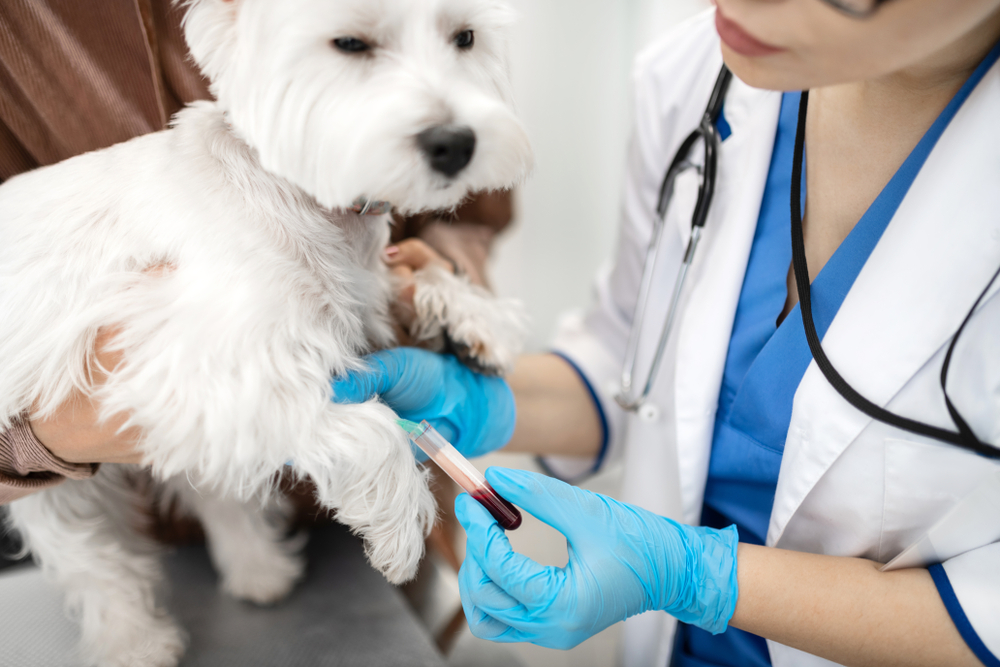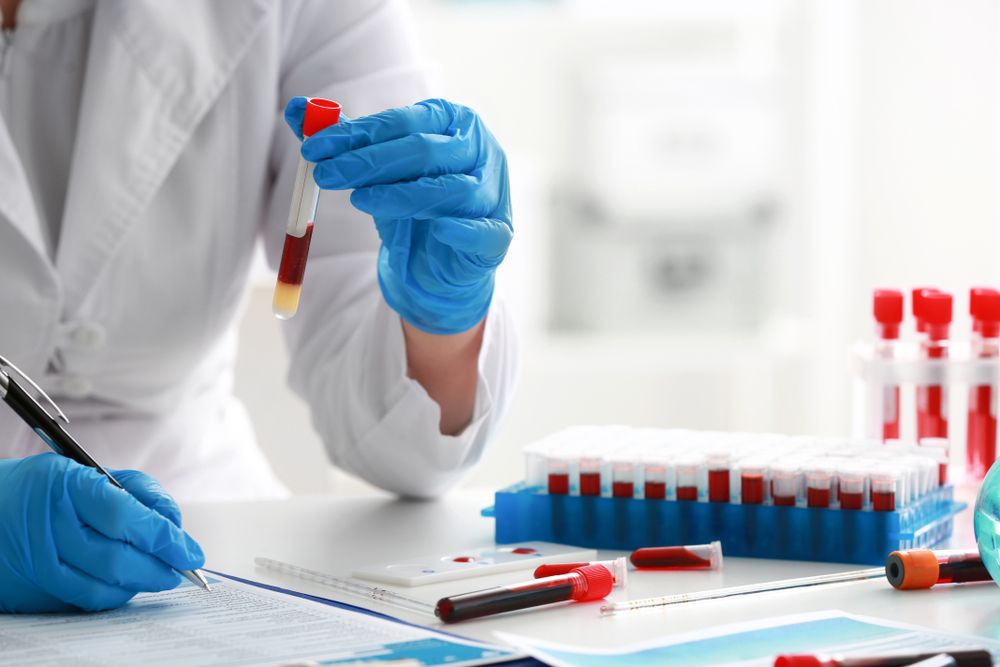
At some point in your pet’s life, they will need blood testing. Whether as part of a pre-anesthetic evaluation or to help diagnose disease, laboratory tests are important tools used throughout your pet’s life, for a variety of reasons. But, while you may be a doting pet owner, willing to do whatever your veterinarian recommends, you may not always understand what tests your pet needs or why. Livermore Family Pet Hospital wants to help you learn blood work basics.
Why do pets need blood testing?
Our blood serves a crucial role as a transporter of cells, enzymes, vitamins, minerals, and other important substances throughout the body, and therefore holds a lot of information about our pet’s health and inner functioning. Veterinarians use blood work as a diagnostic tool when they need to know more about their patient’s health status. Here are a few reasons why our veterinary team may recommend blood testing for your pet:
- Prior to general anesthesia — To ensure no abnormalities may interfere with your pet’s ability to metabolize the anesthetic medications
- As a part of adult and senior wellness care — To detect age-related diseases in senior pets, before clinical signs are apparent
- As a screening tool — To screen for certain diseases, such as tick-borne or vector-borne conditions
- As a diagnostic tool — To help your veterinarian narrow down possible causes for your pet’s signs when they are ill
What types of blood tests might my pet need?
Some of the most common blood tests evaluate blood cell numbers and enzyme levels to diagnose and assess disease severity, but myriads of specific tests exist. Your Livermore Family Pet Hospital veterinarian will recommend blood testing based on your pet’s age, health status, and clinical signs. Commonly ordered tests include:
- Complete blood count (CBC) — A CBC evaluates your pet’s red and white blood cell levels and platelets, and can indicate whether your pet has anemia (i.e., low red blood cell count), inflammation, infection, or certain cancers.
- Serum biochemistry panel — This test, which assesses liver and kidney function, electrolytes, glucose, and enzyme levels, provides valuable information about your pet’s internal health.
- Heartworm and tick-borne disease rapid test — This test, which looks for the presence of heartworm antigen and antibodies to common tick-borne pathogens like Borrelia burgdorferi and Ehrlichia canis, requires only a small amount of blood, and can be performed quickly in the clinic or a laboratory.
- Feline leukemia/feline immunodeficiency virus rapid test — This test can also be performed quickly with a small blood sample, and looks for antibodies to two highly contagious infectious diseases of cats.
- Thyroid panel — A thyroid panel looks at thyroid hormone levels in the blood to evaluate for common diseases of dogs and cats.
How can I decode my pet’s blood test results?

If our veterinary team recommends a blood test for your pet, we will guide you through the results as soon as they are available. If we need to send the blood sample to an outside laboratory, this may take several days. In general, blood test results will display the name or abbreviation of what the test measured (i.e., Free T4), its quantitative value, and a reference range of values that are considered normal in your pet’s species. A value in your pet that is above or below the reference range is typically indicated in a bold font, red color, or with the words “low” or “high,” to highlight the abnormality. Your veterinarian will help you understand what these values mean for your individual pet, including an appropriate follow-up plan. Some common abbreviations you may see on your pet’s blood work include:
- WBC = White blood cell count
- RBC = Red blood cell count
- PLT = Platelet count
- HCT = Hematocrit (i.e., the volume percentage of circulating red blood cells)
- ALT = Alanine transaminase (i.e., a liver cell enzyme
- ALKP = Alkaline phosphatase (i.e., a liver cell enzyme)
- BUN = Blood urea nitrogen (i.e., a waste product eliminated by the kidneys)
- CREA = Creatinine (i.e., a waste product eliminated by the kidneys)
- ALB = Albumin (i.e., a protein produced in the liver)
- T4 = Thyroxine (i.e., a thyroid hormone)
- TSH = Thyroid-stimulating hormone (i.e., a hormone that stimulates the thyroid to produce more thyroxine)
Of course, veterinarians can test for many other values, which they may pursue, depending on your pet’s needs.
If you are ever unsure how to interpret your pet’s blood results, contact the veterinary team at Livermore Family Pet Hospital for guidance.

